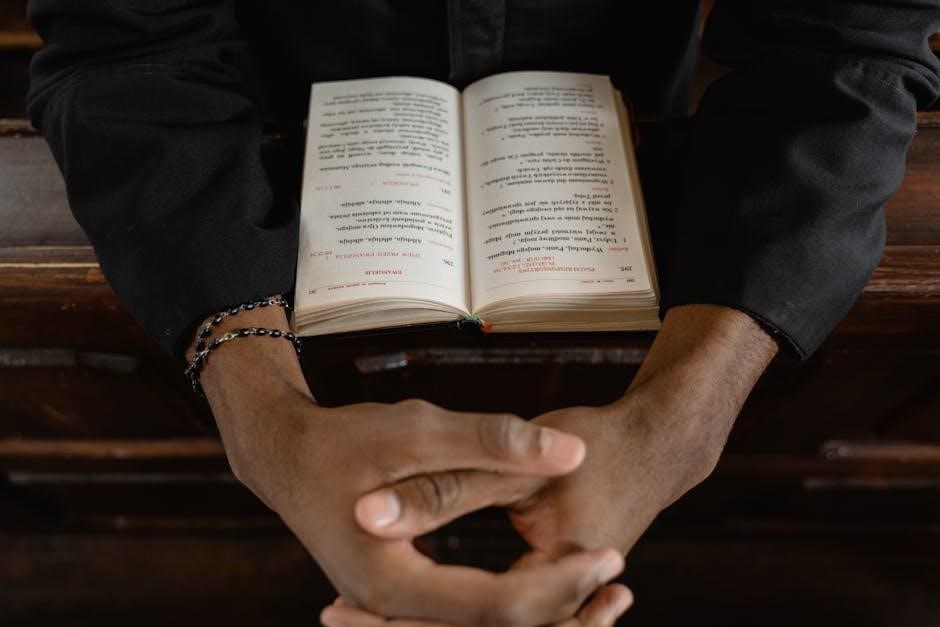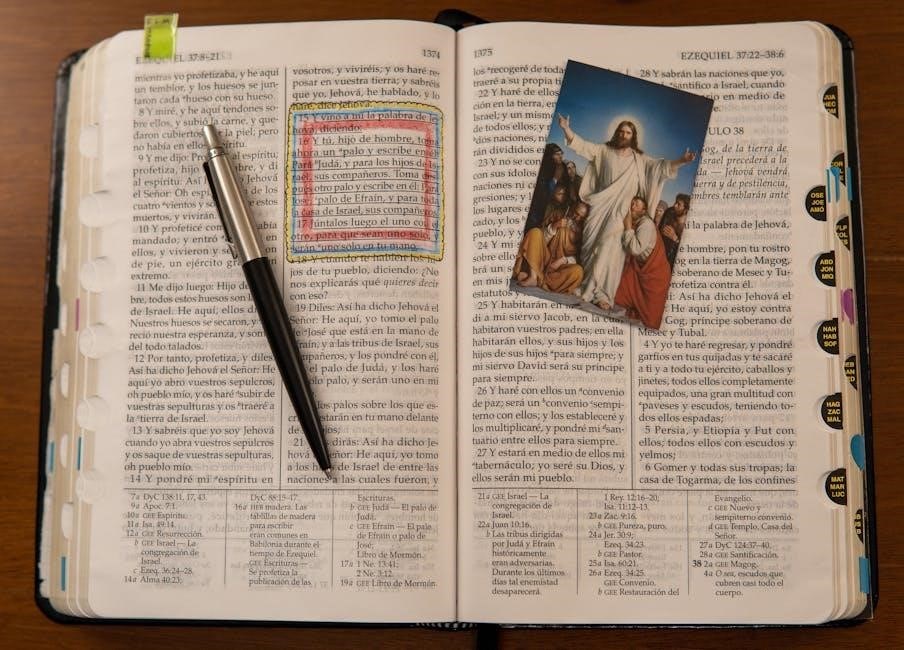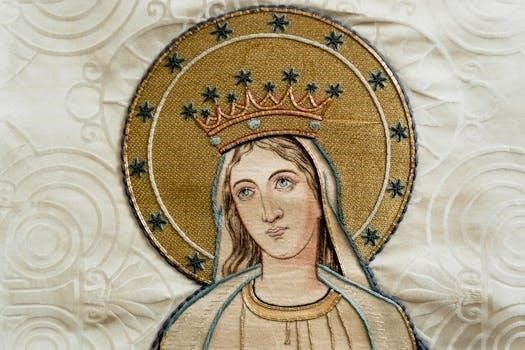English Grammar in Use Intermediate PDF: A Comprehensive Guide
Embark on a journey to master English grammar with the “English Grammar in Use Intermediate PDF.” This comprehensive guide is designed to help intermediate learners improve their understanding and application of English grammar concepts. It offers clear explanations and practical exercises.
“English Grammar in Use Intermediate” stands as a premier resource for English language learners seeking to solidify their grasp of grammar. Specifically tailored for those at the intermediate level (B1-B2)‚ this book provides a structured approach to mastering key grammatical concepts. Its enduring popularity stems from its clear‚ accessible explanations and abundant practice exercises‚ making it an ideal tool for both classroom instruction and self-study.
This edition builds upon the strengths of previous versions‚ incorporating updated content and a user-friendly design. The book’s organization allows learners to focus on specific areas of difficulty‚ with each unit dedicated to a particular grammar point. Real-world examples and engaging activities further enhance the learning experience‚ fostering a deeper understanding of how grammar functions in everyday communication.
Whether you’re preparing for an English proficiency exam or simply aiming to improve your overall fluency‚ “English Grammar in Use Intermediate” offers a comprehensive and effective pathway to grammatical competence.

Target Audience: Intermediate Learners (B1-B2)
“English Grammar in Use Intermediate” is meticulously crafted for English language learners at the intermediate level‚ specifically those aligned with the B1 and B2 proficiency levels of the Common European Framework of Reference for Languages (CEFR). These learners typically possess a foundational understanding of English grammar but require further guidance to refine their skills and expand their knowledge base.
This book caters to individuals who can engage in simple conversations‚ comprehend basic texts‚ and express themselves on familiar topics. However‚ they may encounter challenges with more complex grammatical structures‚ nuanced vocabulary‚ and idiomatic expressions. “English Grammar in Use Intermediate” bridges this gap by providing clear explanations‚ targeted exercises‚ and ample opportunities for practice.
It serves as an invaluable resource for students preparing for intermediate-level English exams‚ as well as for anyone seeking to enhance their overall communication skills in English. The book’s comprehensive coverage and user-friendly approach make it an ideal companion for learners striving to achieve greater fluency and accuracy.
Key Features of the Textbook
“English Grammar in Use Intermediate” boasts several key features that contribute to its effectiveness as a learning tool. Firstly‚ its clear and concise explanations of grammar points make complex concepts accessible to intermediate learners. The book avoids technical jargon and employs straightforward language‚ ensuring that students can easily grasp the fundamentals.
Secondly‚ the textbook offers a wide range of practice exercises that reinforce learning and allow students to apply their knowledge in a practical context. These exercises include gap-fill activities‚ multiple-choice questions‚ sentence transformations‚ and communicative tasks‚ providing a varied and engaging learning experience.
Thirdly‚ “English Grammar in Use Intermediate” incorporates real-world examples and authentic language‚ exposing learners to the way grammar is used in everyday situations. This helps students develop a deeper understanding of the nuances of English and improves their ability to communicate effectively.
Finally‚ the book includes a comprehensive answer key‚ enabling students to check their progress and identify areas where they need further practice. This feature makes it ideal for self-study‚ allowing learners to work at their own pace and track their improvement.
Grammar Topics Covered
“English Grammar in Use Intermediate” provides comprehensive coverage of essential grammar topics for B1-B2 level learners. The textbook delves into verb tenses‚ exploring the nuances of the present perfect‚ past perfect‚ and future tenses‚ enabling students to accurately express actions in different time frames.
The book also covers modal verbs‚ such as “can‚” “should‚” and “must‚” clarifying their various uses in expressing ability‚ obligation‚ and possibility. Learners will gain a solid understanding of conditionals‚ including zero‚ first‚ second‚ and third conditionals‚ mastering the art of hypothetical statements.
Furthermore‚ “English Grammar in Use Intermediate” addresses reported speech‚ equipping students with the skills to accurately convey what others have said. The textbook also explores relative clauses‚ enabling learners to create complex sentences with precision.
Passive voice constructions are also thoroughly examined‚ allowing students to vary their sentence structure and emphasize different aspects of a situation. Finally‚ the book covers articles‚ quantifiers‚ and prepositions‚ ensuring a well-rounded understanding of fundamental grammar concepts. Through these topics‚ learners will significantly enhance their overall English proficiency.
Using the Book for Self-Study
“English Grammar in Use Intermediate PDF” is ideally suited for self-study. Its clear explanations and abundant practice exercises make it a user-friendly resource for independent learners. Start by reviewing the table of contents to identify areas where you need the most support. Each unit focuses on a specific grammar point‚ presented with concise explanations and illustrative examples;
Work through each unit systematically‚ carefully reading the explanations and completing the exercises that follow. Use the answer key provided to check your work and identify any areas of difficulty. Don’t hesitate to revisit units as needed to reinforce your understanding.
To maximize your learning‚ consider keeping a grammar notebook where you can jot down key rules‚ examples‚ and personal observations. Regularly review your notes to consolidate your knowledge. Supplement your study with real-world examples of English‚ such as articles‚ books‚ and conversations‚ to see how the grammar points are used in context.
Furthermore‚ make use of online resources and practice materials to further enhance your skills. With dedication and consistent effort‚ “English Grammar in Use Intermediate PDF” can be a powerful tool for achieving your English language goals.
Supplementary Exercises and Resources
To further enhance your learning with “English Grammar in Use Intermediate PDF‚” consider incorporating supplementary exercises and resources into your study routine. The textbook itself includes a wealth of practice activities‚ but additional materials can provide valuable reinforcement and expand your understanding.
Many websites offer free grammar quizzes and exercises that align with the topics covered in the book. These online resources can provide a fun and engaging way to test your knowledge and identify areas where you may need additional practice. Look for websites that offer instant feedback and explanations for incorrect answers.
In addition to online resources‚ consider using grammar workbooks designed for intermediate learners. These workbooks typically offer a variety of exercises‚ including sentence completion‚ multiple choice‚ and error correction. Working through these exercises can help you solidify your understanding of grammar rules and improve your accuracy in writing and speaking.
Furthermore‚ explore resources that focus on specific grammar points that you find challenging. Many websites and textbooks offer in-depth explanations and exercises on topics such as verb tenses‚ articles‚ and prepositions. By targeting your weaknesses‚ you can accelerate your progress and build a stronger foundation in English grammar. Remember to actively seek out diverse learning materials.
Editions and Availability
“English Grammar in Use Intermediate” has been published in multiple editions‚ each offering updated content and features. The latest edition‚ typically the fifth edition‚ is the most current version and incorporates the most recent developments in English grammar teaching. Earlier editions‚ while still valuable‚ may not reflect the latest changes in language usage.
The textbook is widely available in both physical and digital formats. You can purchase the physical book from major bookstores‚ online retailers‚ and educational suppliers. The digital version‚ often in PDF format‚ can be purchased or accessed through online platforms. Many learners seek out the “English Grammar in Use Intermediate PDF” for its convenience and portability.
When searching for the PDF version‚ be cautious of unauthorized sources. Downloading from unofficial websites may expose your device to viruses or malware. It is always best to obtain the PDF from reputable sources‚ such as the publisher’s website or authorized online retailers. These sources ensure that you are receiving a legitimate and safe copy of the textbook.
Furthermore‚ check if your educational institution or library offers access to the digital version of the book. Many institutions subscribe to online databases that provide access to a wide range of educational materials‚ including “English Grammar in Use Intermediate.” Always prioritize legitimate and secure sources.

Benefits of Using English Grammar in Use
“English Grammar in Use” offers numerous benefits for intermediate English learners. Its clear and concise explanations make complex grammar concepts accessible and easy to understand. The book focuses on practical usage‚ helping learners apply grammar rules in real-life situations. The abundance of exercises provides ample opportunities for practice and reinforcement.

One of the key advantages is its self-study format. Learners can work through the material at their own pace‚ focusing on areas where they need the most help. The book includes answers to the exercises‚ allowing learners to check their progress and identify areas for improvement. This self-directed learning approach fosters independence and confidence.
The textbook covers a wide range of grammar topics relevant to intermediate learners‚ ensuring a comprehensive understanding of English grammar. It helps learners develop a solid foundation in grammar‚ which is essential for effective communication in both spoken and written English. By mastering grammar‚ learners can express themselves more accurately and fluently.
Furthermore‚ “English Grammar in Use” is a widely recognized and respected resource. Its use can enhance learners’ credibility and demonstrate their commitment to improving their English skills. The book’s popularity also means that there are numerous supplementary resources available‚ such as online forums and study groups‚ where learners can connect with others and share their learning experiences.
Comparison with Essential Grammar in Use
“English Grammar in Use” and “Essential Grammar in Use” are both popular grammar resources by Raymond Murphy‚ but they cater to different proficiency levels. “Essential Grammar in Use” is designed for beginner or elementary learners (A1-A2)‚ focusing on the foundational aspects of English grammar. It introduces basic concepts with simple explanations and exercises.
In contrast‚ “English Grammar in Use” is aimed at intermediate learners (B1-B2) who have a basic understanding of English grammar. It delves into more complex grammar topics‚ providing more detailed explanations and a wider range of exercises. The intermediate version assumes learners have already grasped the fundamental concepts covered in the essential version.
The level of complexity in the exercises also differs. “Essential Grammar in Use” features simpler exercises designed to reinforce basic understanding. “English Grammar in Use” includes more challenging exercises that require learners to apply their knowledge in various contexts. The intermediate version focuses on refining grammar skills and addressing common errors made by intermediate learners.
Choosing between the two depends on your current English level. If you are new to English grammar or need to review the basics‚ “Essential Grammar in Use” is the better choice. If you have a solid foundation and want to improve your accuracy and fluency‚ “English Grammar in Use” is the more appropriate option.
Where to Find PDF Versions
Finding PDF versions of “English Grammar in Use Intermediate” requires careful navigation due to copyright restrictions. While readily available online‚ downloading unauthorized PDFs is illegal. It is essential to respect copyright laws and seek legitimate sources.
One approach is to check online bookstores or educational platforms that offer digital versions of the book. Some platforms may provide a PDF version for purchase or rental‚ ensuring you have a legal copy.
Another avenue is to explore online libraries or educational resource websites. Some libraries may offer access to digital copies of textbooks‚ including “English Grammar in Use Intermediate‚” to their members. These resources often require a subscription or membership.
Be cautious when searching for free PDF downloads on the internet. Many websites offering free PDFs may contain malware or viruses‚ which can harm your device. Additionally‚ downloading from unofficial sources violates copyright laws and deprives the author and publisher of their rightful compensation.
Consider purchasing the official digital version from reputable online retailers. This ensures you receive a high-quality‚ legal copy of the textbook‚ supporting the author and publisher. Remember to prioritize safety and legality when searching for PDF versions of educational materials.
Online Resources and Practice Materials
To enhance your learning with “English Grammar in Use Intermediate‚” numerous online resources and practice materials are available. These supplementary tools can significantly improve your understanding and application of grammar concepts. Many websites offer interactive exercises‚ quizzes‚ and grammar explanations that complement the textbook.
Consider exploring websites dedicated to English language learning. These platforms often provide grammar lessons‚ vocabulary exercises‚ and writing prompts suitable for intermediate learners. Some websites may even offer video tutorials that explain complex grammar rules in a clear and engaging manner.
Online grammar checkers can be valuable for identifying and correcting errors in your writing. These tools can help you improve your accuracy and fluency in English. However‚ it’s essential to use grammar checkers as a guide rather than relying on them completely‚ as they may not always catch every mistake.

Participating in online forums or language exchange communities can provide opportunities to practice your English with other learners. You can ask questions‚ share your writing‚ and receive feedback from native speakers or experienced learners.
Mobile apps designed for English grammar practice can be a convenient way to reinforce your knowledge on the go. Many apps offer bite-sized lessons and interactive exercises that you can complete during your commute or free time. By utilizing these online resources and practice materials‚ you can maximize the benefits of “English Grammar in Use Intermediate” and achieve your language learning goals.

























